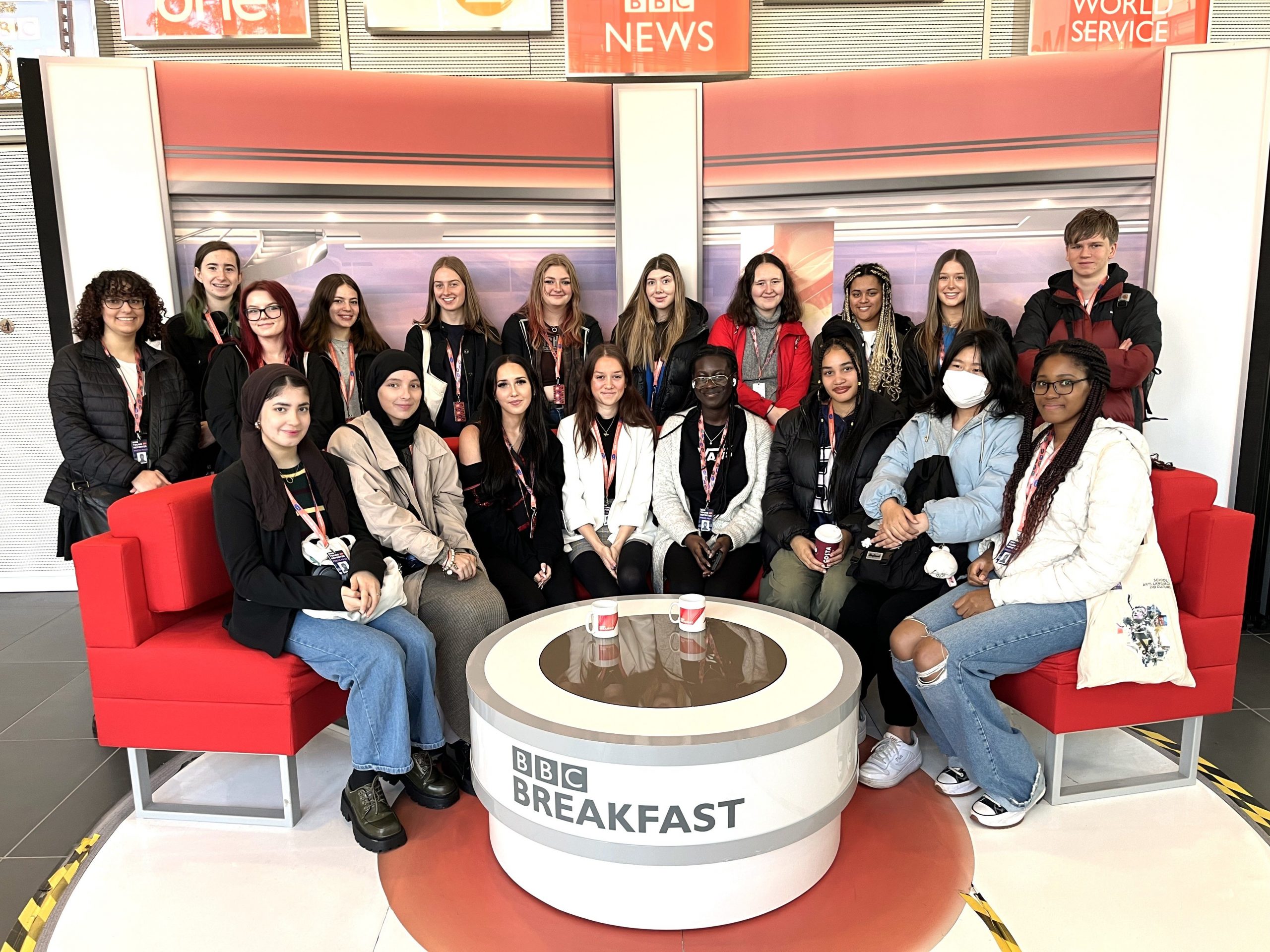
A Level Media Studies
A Level Media Studies is for students who want to learn about how media content is produced. On the course you will expand your knowledge of how a variety of media industries work and the effect these industries have on audiences. You will also have the opportunity to produce your own moving image and web based media content in the practical coursework unit.
Exam board: EDUQAS
Components
Component 1: media products, industries and audiences
Percentage of total marks: 35%
Method of assessment: Written exam 2 hours 15 minutes
You will study advertising, music video, radio, video games, film and newspapers.
Component 2: media forms and products in depth
Percentage of total marks: 35%
Method of assessment: Written exam 2 hours 30 minutes
You will focus on television, magazines and online media.
Component 3: cross-media production
Percentage of total marks: 35%
Method of assessment: practical project and coursework
You will produce a music video and band/artist website (coursework unit).
Skills
Media Studies teaches you how to read and analyse the media and enhances your understanding of current events in the world. You will learn about how media products are made, who produces them and why. You will also gain insights into how the media portrays various social groups and how the audience interprets these representations.
In the practical side of the course, you will develop research, filming, editing and web design skills using up-to-date hardware and software such as Adobe Premiere Pro.
Careers / destinations
Many students go on to media-related degrees and apprenticeships in areas such as film, television, advertising, radio and digital marketing. Past students have gone on to a range of degree courses in subjects as diverse as English Literature, Law and Architecture.
Media Studies
What is the difference between Media Studies and Film Studies?
Media Studies deals with a range of media industries including film,
advertising, newspapers, video games, magazines and online media. As well as analysing texts, in Media Studies you look at how the industry operates including production, marketing and distribution. Media Studies at Loreto also includes a practical coursework element where you produce your own music video and website.
Do I need my own equipment for Media Studies?
No. You can use your own equipment but the department also operates a camera hire system, has its own studio and edit suites running the Abode Premiere and Final Cut Pro editing packages, so we have all the hardware and facilities you need to make your own high-quality media products
What will I learn in A Level Media Studies?
Media Studies teaches you how to read and analyse the media and
enhances your understanding of current events in the world. You will learn about how media products are made, who produces them and why. You will also gain insights into how the media portrays various social groups and how the audience interprets these representations. In the practical side of the course, you will develop research, filming, editing and web design skills using up-to-date hardware and software.
Do I have to perform in my music video?
No. Some students choose to perform in their projects but most work behind the camera. Often our students collaborate with students from other departments such as music and performing arts to make their music videos.
What can I do with an A Level in Media Studies?
Media students progress onto a variety of degrees and careers/apprenticeships. Many go on to study media, advertising or journalism at university and some of our students have taken up apprenticeships in media and digital marketing companies. However, lots of students use their Media A Level as a stepping stone to degree courses as varied as English, History, Architecture and Politics.
Do Russell Group universities accept Media Studies A Level?
Yes. Most Russell Group universities have Media degree courses and all will accept Media alongside one or two other subjects for degree courses in other subjects. Always best to research the entry requirements for each course.
